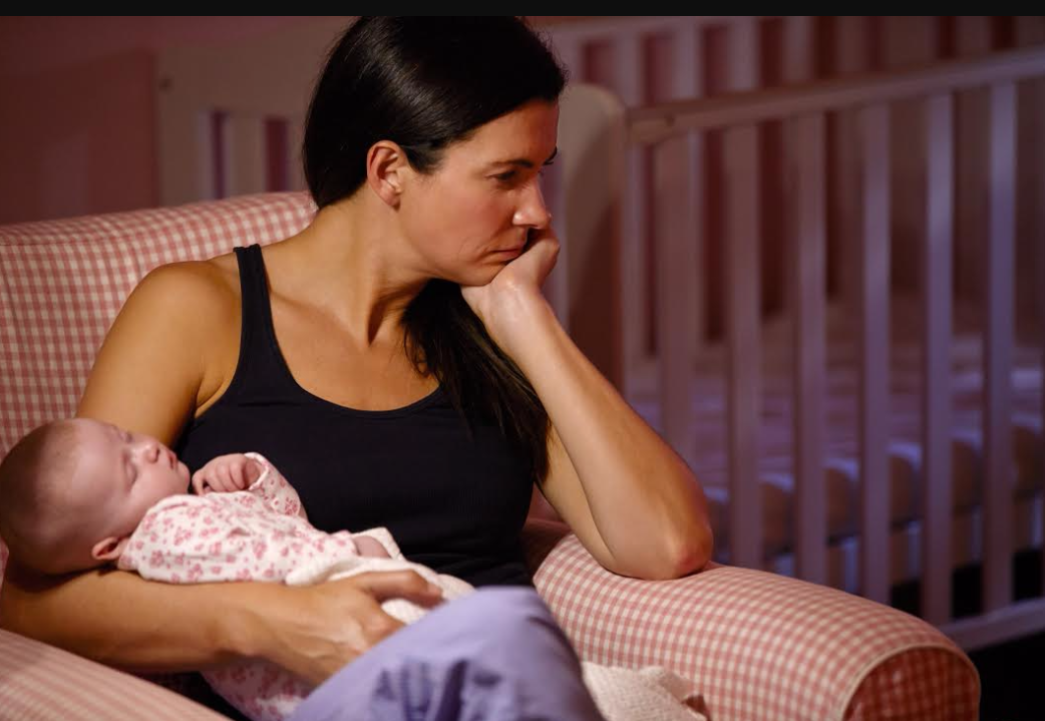by Sarah Doll, MA, LPCC
There is so much joy and excitement around bringing a new baby into the world and the process leading up to it. Everything from the pregnancy test that comes back positive, to seeing, and hearing the heartbeat for the first time, the first (and subsequent) ultrasounds where you can see the baby growing, to the moment the baby enters the world.
But not all pregnancies, births, or the postpartum periods are joyful. Some mom’s, whether it be first time mom’s or 2nd, 3rd or 4th time mom’s, experience depression, anxiety and even psychosis during pregnancy and the postpartum period.
What are the Baby Blues?
70-80% of new moms (or experienced moms having another child), experience the baby blues after the birth of a child. Symptoms can include irritability, anxiety, sadness, crying for no reason, fatigue, difficulty sleeping (even if baby is sleeping), and difficulty concentrating. These symptoms typically occur for a few minutes or up to a few hours every day and last up to 2 weeks after delivery. The baby blues are thought to be caused by a change in hormones following the birth of a child. In addition, having a baby is a major life transition and it’s very normal to struggle during the adjustment period.
What if my symptoms don’t go away?
About 15% of mothers continue to struggle 2 weeks after having a baby. Their symptoms can include: insomnia; feeling sad, anxious or “empty”; not feeling connected to the baby; feeling hopeless, helpless, guilty or worthless; extreme fatigue; difficulty concentrating, difficulty making decisions, decreased appetite, obsessive and racing thoughts; thoughts of hurting themselves or the baby, suicidal thoughts, hearing voices.
If new mothers are experiencing these symptoms this is not the baby blues but postpartum depression, anxiety, OCD or possibly postpartum psychosis and it is extremely important that mothers seek help at this time.
Unfortunately, many women do not ask for help because they have heard over and over again how “incredible”, “wonderful”, “joyful”, “amazing” and on and on, having a new baby is. To not feel this way produces extreme feelings of guilt and inadequacy for mothers, and so they choose to suffer in silence and end up feeling incredibly alone.
What Can I do?
Fortunately, postpartum mood disorders are treatable once a mother has the courage to ask for help. It’s important to seek out a therapist that specializes in postpartum mood disorders. In addition to therapy, other things that can help include:
- Support Groups
- Asking family and friends for help.
- Consider medications that can be safely used during breastfeeding to helpmanage symptoms
- Acupuncture
- Exercise
- Healthy nutrition
- Sleep
The most important thing for moms struggling with postpartum depression or anxiety to remember is that You Are Not Alone. If you, or your loved one, are experiencing a postpartum mood disorder, please contact Cashman Center so your healing can begin!
Resources
Postpartum Support International http://www.postpartum.net/
Pregnancy and Postpartum Support Minnesota: ppsupportmn.org
HelpLine (Pregnancy & Postpartum Support MN): 612-787-PPSM (7776)
The Pregnancy & Postpartum Anxiety Workbook: Practical Skills to Help You Overcome Anxiety, Worry, Panic Attacks, Obsessions, and Compulsions. By Pamela Wiegartz






